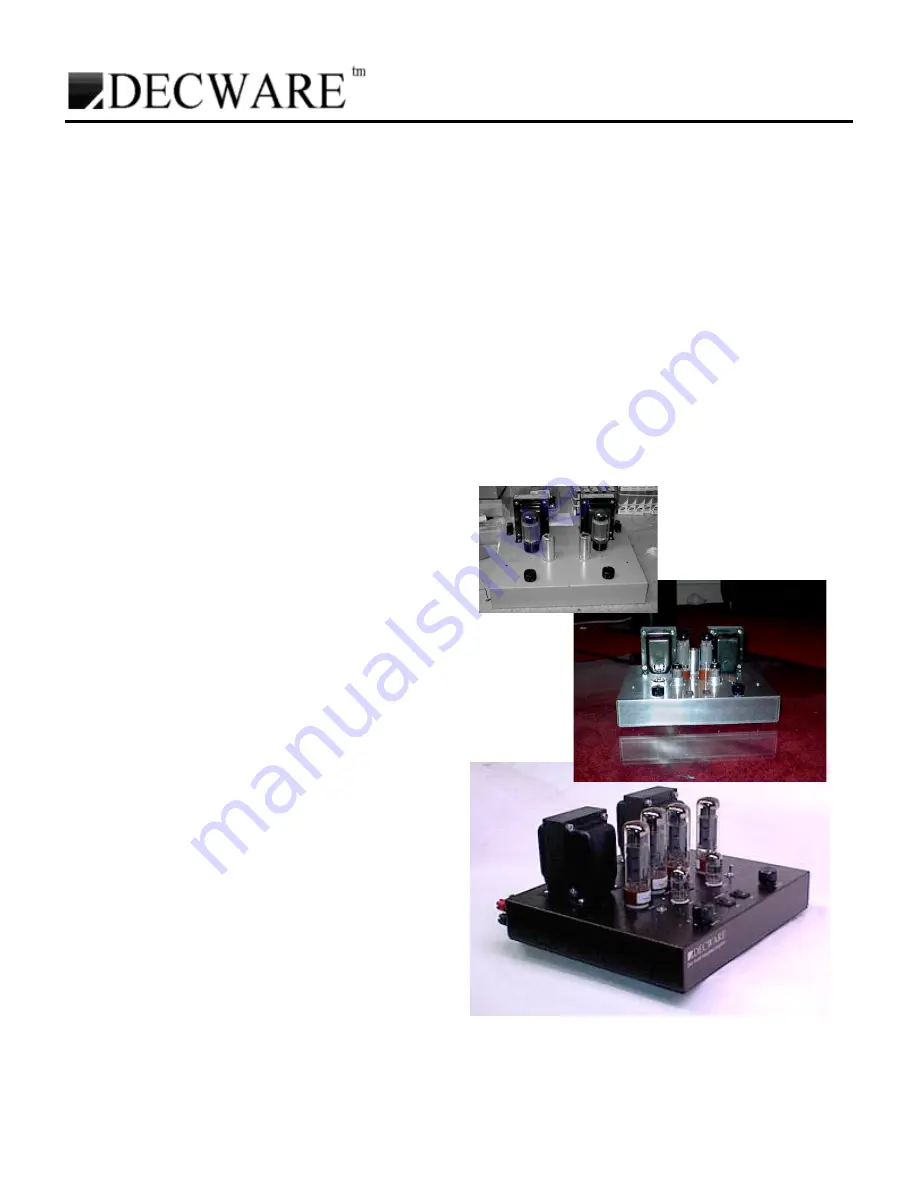
High Fidelity Engineering Co.
www.decware.com
Integrated has two output tubes
per channel. One wired in pure
triode, one in zen triode.
Each tube has it's own core in the output
transformer making it possible to create 4 dif-
ferent combinations -each resulting in a differ-
ent signature. This is a technology we bor-
rowed from our Signature Zen Triode Mon-
oblocks.
For example:
There are two pairs of binding posts for each
channel on the rear of the amplifier. Each set
of posts is driven by one single ended EL34
tube. You can remove the two tubes wired in
zen triode, and using the correct set of binding
posts, you can have a single tube, single
ended pure triode amp. Oh and don't forget it's
dual mono.
Or, you might want to hear what the zen tri-
ode wired tubes sound like vs. the true triode
so you simply do the same thing with the other
tubes.
Perhaps you'd like to hear them both together
(my favorite) then you can parallel the two
jacks reinstall the other two tubes. Let's see,
that's three different amplifiers so far.
Or, you can series the two jacks instead and
experience a completely new window into the
signature with both tubes and both cores
working in perfect harmony as one entity.
These four options are no different that owning
four different amplifiers
. Add to that a pres-
ence switch that changes the coupling imped-
ance between the driver and output stages of
the amp, and you really have 8 different am-
plifiers to listen to. Then realize that the driver
tubes, the very special 6N1P can be rolled with
6DJ8's and 6922's and you multiply the poten-
tial signatures of the amp even more. And of
course don't forget it also has a dual mono
preamp built-in, hence the term "integrated"
using the same 6N1P.
It should go without saying that the serious
tweaker will be in pure heaven without ever
having to crack the cover, or re-bias the ampli-
fier.
Sorry, I just couldn't think of a short way to
explain why we choose the EL34 output tubes
for our long awaited integrated amp.
The result I am confident will have superior
sonics to many if not all 300B or 2A3 type am-
plifiers with equal or better power.
Steve Deckert
August 2001
Original concept
Prototype
End result—Model SE34-I




